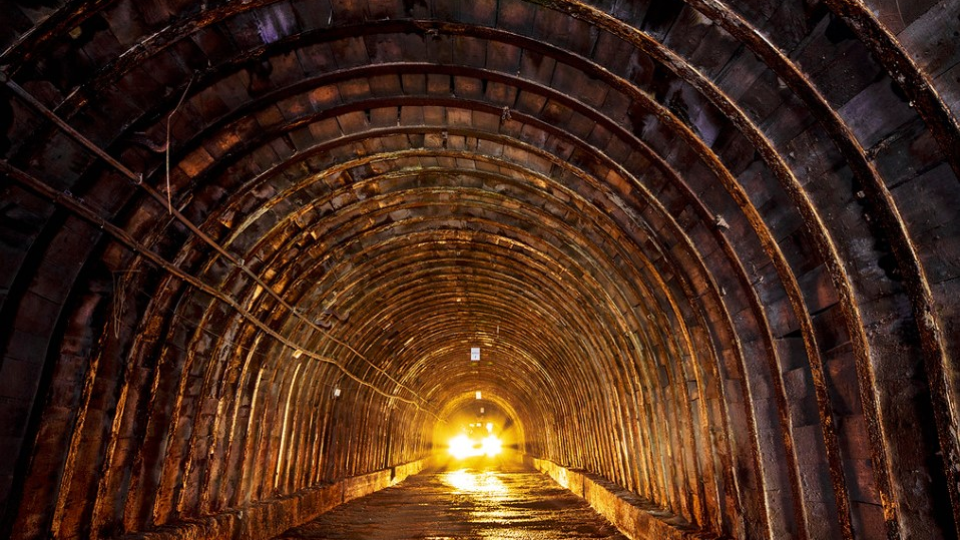The United Kingdom excels as a global leader throughout the entire mining lifecycle, encompassing not only traditional mining practices but also pioneering low carbon solutions that contribute to a more sustainable and environmentally responsible mining industry.
Mineral extraction and refining
The UK’s supply chain plays a pivotal role in promoting clean growth and sustainable resource development. It is reinforced by the world-class capabilities of UK mining companies, which prioritise responsible mineral development and adopt strategies that not only foster long-term economic prosperity but also safeguard biodiversity and the environment.
Furthermore, the UK stands as a prominent global hub for mining finance and trading. The country is witnessing a burgeoning domestic extraction industry, with companies actively exploring and developing critical mineral projects across the UK. This industry growth is further facilitated by support from the Department for International Trade, underscoring the UK’s commitment to responsible resource development and sustainable economic advancement.

Opportunity highlights
Mining Heritage
The UK’s rich history in mining and its expertise in niche high-quality equipment sectors position companies in the country to potentially secure a significant share of the global market. UK-based firms are well-versed in conducting initial scoping studies and overseeing all phases of mining projects, from feasibility assessments to detailed mine design, construction, operation, and even mine closure.
Critical Raw Materials and Clean Growth
The increasing focus on clean growth and future mobility is fuelling global demand for high-technology metals. The World Bank predicts a nearly 500% rise in the production of minerals like graphite, lithium, and cobalt by 2050 to meet the growing requirements for clean energy technologies.
Opportunities for Inward Investment
There are opportunities for foreign investment in the UK to develop new mining projects and innovative technologies. Many of these investments are supported by grants from Innovate UK, fostering the exploration of the UK’s domestic resources and advancements in the midstream processing and refining sector.
Freeports
The establishment of freeports in the UK presents opportunities for the country to evolve into a critical minerals processing hub, serving not only the domestic market but also providing supplies to Europe and other global regions. This development positions the UK as a vital player in the global supply chain for critical minerals.
Commercial maturity
In the UK, numerous companies within the mining supply chain have a long history of harnessing renewable energy to construct high-quality, low-emission equipment. This experience positions them as experts in the field and provides an opportunity to address capability gaps in the industry.
The UK’s world-leading capabilities span the entire mining lifecycle, encompassing finance, legal support, environmental management, engineering consultancy, exploration, mine operation, infrastructure development, emissions reduction, clean energy solutions, high-tech equipment development, and remediation strategies for mine closure. These comprehensive capabilities underpin the UK’s standing as a global leader in the mining sector, offering a wide array of expertise and services throughout every phase of mining operations.
UK assets
Cornwall
- Cornwall has a rich history of mineral extraction and hosts over 110 companies that contribute to a growing mining cluster, which includes exploration and development firms.
- Businesses in Cornwall benefit from access to industry-ready graduates from local universities, such as the University of Exeter Camborne School of Mines and the Plymouth University School of Geography, Earth, and Environmental Science in Devon.
London
- London is a global epicenter for mining finance, home to 171 metals and mining companies. It accounts for a substantial 21% of the total market capitalization of all listed mining companies worldwide.
- Four of the ten largest publicly traded mining companies are listed in London, attracting leading mining consultancies and service providers. This concentration has led to the creation of a global center of excellence supported by a robust supply chain.
Global Metals Trading and Pricing
- The London Metal Exchange (LME) serves as the world’s primary hub for trading industrial metals. Prices established on the LME’s trading platforms are used as the global reference, and both the metal and investment communities rely on the LME to manage or assume risk around the clock.
Legal and Regulatory Environment
- Global mining companies favour the UK’s legal and regulatory systems due to their stability, clarity, and capacity to attract investments. Additionally, UK-based institutions play a significant role in developing and implementing international standards for the mining industry.
Freeports
- The freeports at Teesside and Humber have garnered the attention of mine development companies seeking to establish critical mineral processing facilities close to battery manufacturing centers. These brownfield sites with freeport advantages receive support from a strong academic and industry innovation sector and are strategically located near key export and domestic battery and automotive manufacturing hubs.
R&D capability
In the United Kingdom, a robust ecosystem of organizations and educational institutions actively promotes and supports innovation within the mining sector:
The Institute of Materials, Minerals, and Mining (IOM3): IOM3 plays a vital role in encouraging innovation by fostering the development of the materials cycle, which is essential for the mining industry’s sustainability.
UK Research and Innovation (UKRI), UK Catapults, Innovate, and UK Government-Funded Organizations: These entities collectively contribute to driving innovation within the UK mining sector. They provide funding, resources, and support to propel research and development in the field.
Higher Education Institutions: The UK is home to over 170 universities and higher education institutes. Four of these universities are ranked in the global top 10. They have world-class research centres dedicated to geoscience, minerals, materials, and engineering. These institutions collaborate with corporate research institutes to conduct both pure and applied research across the mining industry and its supply chain.
Specialist Mining Colleges
- University of Exeter Camborne School of Mines: This institution focuses on mining education and research, contributing significantly to the advancement of the mining sector.
- Royal School of Mines (part of Imperial College, London): A renowned institution with a deep history in mining and minerals-related education and research.
University of Exeter Research Centre: The University of Exeter has established a pioneering research centre that explores the extraction, use, and recycling of crucial metals in clean and digital technologies throughout the UK. This initiative is critical for advancing sustainable mining practices and resource management.
These collective efforts and educational institutions showcase the UK’s commitment to innovation and research in the mining sector, fostering progress and sustainability in the industry.
Business and government support
The UK government is actively investing £12 billion as a crucial component of its Ten Point Plan, aimed at promoting green jobs and facilitating the transition to a net-zero economy by 2050. This substantial commitment opens the door for the mining sector to seize green opportunities, particularly in the supply of high-tech metals essential for emerging battery technologies.
The government’s incentives are well-aligned with the growing demand for clean energy solutions and environmentally friendly innovations, positioning the UK mining sector to play a pivotal role in this transition towards a more sustainable and eco-friendly future.



